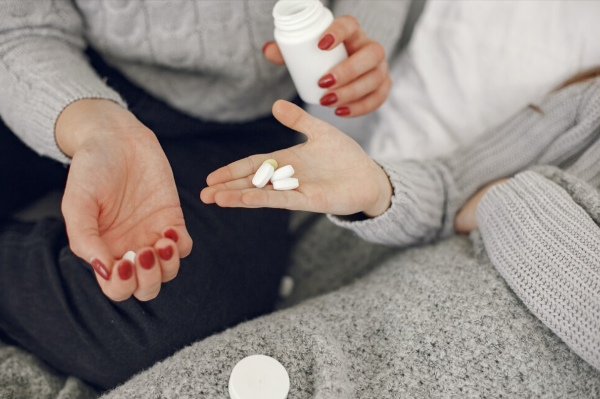Introduction
When it comes to taking low dose naltrexone, knowing what to avoid is crucial. By steering clear of certain pitfalls, you can maximize the benefits of this medication and ensure its effectiveness in managing various conditions.
From understanding potential interactions with other drugs to avoiding common side effects, being informed can make a significant difference in your treatment journey. Stay ahead by learning about the key things to sidestep when incorporating low dose naltrexone into your healthcare routine.
Be Mindful of Substances
Avoid alcohol and opioid-containing medications when taking low dose naltrexone to prevent adverse interactions and maximize its effectiveness.
Consider Dietary Impact
Pay attention to your diet, especially high-fat meals, as they can affect the absorption of low dose naltrexone.
Adopt Healthy Lifestyle Habits
Incorporate regular exercise, sufficient sleep, and stress management techniques into your routine to support the benefits of low dose naltrexone.
Monitor Side Effects
Stay vigilant for any potential side effects and discuss them with your healthcare provider promptly to address them effectively.
Prepare for Social Settings
Plan ahead for social situations where alcohol may be present to avoid temptations or uncomfortable situations while on low dose naltrexone.
Long-Term Maintenance
Establish a consistent routine for taking low dose naltrexone and attend regular follow-up appointments to ensure its continued safe and effective use.
Understanding Low Dose Naltrexone
Avoid opioid pain medications or opioid-containing products when taking low dose naltrexone to prevent potential interactions.
Basics and Benefits
Low dose naltrexone, a variant of the medication naltrexone, is used in smaller quantities for various purposes. It primarily acts by modulating the immune system rather than blocking opioid receptors.
The benefits of low dose naltrexone include reducing inflammation, improving certain autoimmune conditions, and potentially enhancing overall well-being. Many individuals also report better sleep quality and increased energy levels with its use.
In the body, low dose naltrexone works by interacting with the immune system’s cells, particularly the microglia and T-lymphocytes. This interaction helps regulate immune responses and reduce inflammation.
Common Uses
Common medical conditions treated with low dose naltrexone include fibromyalgia, multiple sclerosis, Crohn’s disease, and chronic pain syndromes. Its off-label uses extend to treating conditions like Hashimoto’s thyroiditis and certain types of cancers.
The effectiveness of low dose naltrexone varies depending on the condition being treated. Studies have shown promising results in reducing symptoms such as pain, fatigue, and inflammation in patients with autoimmune disorders.
Moreover, some individuals find relief from symptoms that were previously unresponsive to conventional treatments. The versatility of low dose naltrexone makes it a potential option for those seeking alternative or adjunct therapies.
Key Considerations Before Starting
Before starting low dose naltrexone, discuss your medical history, current medications, and any concerns with your doctor to ensure it’s safe and suitable for you.
Medical Consultation
Before starting low dose naltrexone, it is crucial to seek advice from a healthcare professional. Discuss any pre-existing medical conditions with your doctor to ensure compatibility. Inform your physician about current treatments or medications you are undergoing.
Health Conditions
Understanding the impact of specific liver conditions on naltrexone usage is essential. Pregnant individuals should be cautious when considering naltrexone due to potential risks. Breastfeeding while on naltrexone may pose certain dangers, so thorough awareness is necessary.
Current Medications
To prevent adverse reactions, it’s important to avoid consuming alcohol while on naltrexone. The combination of illicit drugs with naltrexone can lead to serious consequences. Exercise caution when taking Antabuse or thioridazine in conjunction with naltrexone.
Substances to Avoid
Alcohol
Refrain from consuming alcohol while on naltrexone treatment. Alcohol can counteract the effects of naltrexone, reducing its efficacy in managing conditions like addiction. The interaction between alcohol and naltrexone can lead to adverse outcomes.
Understanding how alcohol interacts with naltrexone is crucial for successful treatment. Alcohol consumption can diminish the benefits of naltrexone, undermining its ability to block opioid receptors. This interference may compromise the intended therapeutic effects.
Be mindful of the impact of alcohol on the effectiveness of naltrexone. Consuming alcohol during naltrexone therapy can diminish its ability to reduce cravings and prevent relapse in individuals with substance use disorders. Avoiding alcohol is essential for maximizing the benefits of naltrexone.
Opioid Medications
Avoid using opioid medications concurrently with naltrexone. Combining these substances can lead to severe consequences due to their opposing actions in the body. Understanding the potential interactions between naltrexone and opioids is crucial for avoiding harmful effects.
It’s important to be cautious of the risks associated with combining naltrexone and opioid medications. Naltrexone blocks opioid receptors, which can nullify the effects of opioids and potentially induce withdrawal symptoms. Mixing these medications can result in unpredictable reactions and jeopardize one’s well-being.
Understanding the implications of combining opioid medications with naltrexone is vital for safe and effective treatment. Consulting healthcare providers before initiating any medication regimen involving opioids alongside naltrexone is essential for preventing adverse reactions.
Certain Over-The-Counter Drugs
Be cautious when using specific over-the-counter drugs alongside naltrexone. Some OTC medications may interact with naltrexone, affecting its absorption or efficacy in treating various conditions. Understanding how certain over-the-counter drugs may impact naltrexone is crucial for optimizing treatment outcomes.
It’s important to consult your healthcare provider before taking any OTC drugs along with naltrexone. Healthcare professionals can provide guidance on which over-the-counter medications are safe to use alongside naltrexone without compromising its therapeutic effects. Ensuring proper medication management enhances treatment effectiveness.
Dietary Considerations
Maintain a balanced diet while taking low dose naltrexone, avoiding excessive alcohol consumption and focusing on nutritious foods to support overall health.
Foods to Avoid
Avoid consuming grapefruit while on low dose naltrexone as it can interfere with its effectiveness. high-fat meals may reduce the absorption of naltrexone, impacting its benefits. Be cautious with caffeine consumption, as it could potentially interact with naltrexone.
Certain foods like dairy products and fiber-rich foods might affect how naltrexone is absorbed in the body. It’s essential to maintain a balanced diet to ensure that naltrexone functions optimally. Consider limiting alcohol intake, as it can intensify side effects when combined with naltrexone.
Supplements Interaction
When taking low dose naltrexone, be wary of combining it with certain supplements such as vitamin E or St. John’s Wort. These supplements may alter the efficacy of naltrexone and lead to unwanted interactions. Always seek advice from a healthcare professional before introducing new supplements alongside naltrexone.
Supplements containing ingredients like magnesium or calcium should be used cautiously with naltrexone, as they can impact its absorption and effectiveness.
It’s crucial to inform your healthcare provider about all supplements you are taking to avoid any potential negative outcomes. Consulting a healthcare professional is vital for managing the interactions between supplements and low dose naltrexone effectively.
Lifestyle Adjustments
Activity Levels
Naltrexone can influence activity levels, so be mindful of any changes while taking it. Understand how naltrexone might impact your physical activities, potentially affecting your energy levels and motivation. Adjust your activity levels accordingly based on how you feel with naltrexone.
Sleep Patterns
When on naltrexone, keep track of any alterations in your sleep patterns. It’s essential to recognize how naltrexone could impact the quality and duration of your sleep. If you notice significant changes, such as difficulty falling asleep or staying asleep, consult your healthcare provider promptly.
Monitoring and Managing Side Effects
Monitor for potential side effects like nausea or headache when starting low dose naltrexone. Report any concerns to your healthcare provider for proper management.
Common Side Effects
Naltrexone may cause common side effects such as nausea, headache, or fatigue. These can occur initially but often subside over time. It’s essential to recognize these side effects to address them promptly.
To manage these side effects, ensure you stay hydrated, get enough rest, and maintain a healthy diet. If symptoms persist or worsen, consult your healthcare provider for guidance. Being aware of potential reactions can help you navigate your treatment journey effectively.
When to Seek Help
Knowing when to seek medical help is crucial while on naltrexone. Signs like severe allergic reactions, breathing difficulties, or chest pain require immediate medical attention. Do not hesitate to reach out if you experience these symptoms.
Seek help if you notice unusual changes in mood or behavior, persistent stomach issues, or any other concerning symptoms. Promptly addressing any emerging concerns can prevent complications and ensure your well-being while undergoing treatment.
Navigating Social Situations
Inform trusted friends and family about your medication. Plan social activities that align with your treatment, avoiding alcohol-heavy events.
Discussing with Friends and Family
Communicate openly with your loved ones about your experience with low dose naltrexone. Educate them on the treatment and its benefits. Seek their understanding and support throughout your journey.
Handling Peer Pressure Develop effective strategies to manage peer pressure surrounding your naltrexone treatment. Clearly communicate your boundaries and decisions regarding the medication to your peers. Surround yourself with a supportive circle to navigate peer pressure successfully.
Long-Term Management
For long-term management of low dose naltrexone, maintain regular communication with your healthcare provider, monitor any changes in symptoms, and adhere to prescribed dosages and lifestyle recommendations.
Regular Check-Ups
-
Schedule regular check-ups with your healthcare provider while on naltrexone.
-
Stay proactive in maintaining your health and well-being through regular visits.
-
Monitor your progress and discuss any concerns during check-up appointments.
Adjusting Dosage
-
Understand the importance of following the prescribed dosage of naltrexone.
-
Be aware of the potential consequences of adjusting your naltrexone dosage without medical guidance.
-
Consult your healthcare provider before making any changes to your dosage.
Conclusion
In managing low dose naltrexone, remember to stay vigilant with your substance intake, diet, and lifestyle choices. Monitoring side effects and adapting to social situations are crucial for long-term success.
By taking these precautions seriously, you can maximize the benefits of low dose naltrexone while minimizing potential risks. Your commitment to these considerations will contribute significantly to your overall well-being and treatment effectiveness. Always consult with healthcare professionals for personalized guidance and support on your journey with low dose naltrexone.
Frequently Asked Questions
What are the key considerations before starting low dose naltrexone?
Before starting low dose naltrexone, consult a healthcare provider to discuss your medical history, current medications, and potential interactions. Understand the purpose of taking LDN and be aware of possible side effects.
Are there substances to avoid when taking low dose naltrexone?
Avoid consuming opioid medications or any substances that act on the brain’s opioid receptors while on LDN. Alcohol should also be limited due to its interaction with naltrexone.
How important are dietary considerations when taking low dose naltrexone?
Maintain a healthy diet rich in nutrients to support your overall well-being while on LDN. Avoid excessive consumption of processed foods and focus on whole foods for optimal results.
What lifestyle adjustments may be necessary when taking low dose naltrexone?
Consider incorporating stress-reducing activities like meditation or exercise into your routine. Adequate sleep and regular physical activity can complement the effects of LDN positively.
How should one monitor and manage side effects of low dose naltrexone?
Keep track of any side effects experienced while on LDN and report them to your healthcare provider promptly. Adjustments in dosage or additional supportive measures may be recommended for managing side effects effectively.
How can one navigate social situations while taking low dose naltrexone?
Inform close friends and family about your medication regimen to ensure they understand its importance. Plan ahead for social events by making mindful choices regarding food, alcohol, and potential triggers.
What is involved in long-term management when using low dose naltrexone?
Regular follow-ups with your healthcare provider are crucial for long-term management of LDN. Monitoring its effectiveness, adjusting dosage if needed, and addressing any emerging concerns are essential components of successful long-term use.
.

